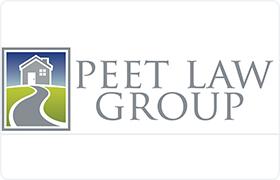Gaysville Real Estate Lawyer, Vermont
Sponsored Law Firm
-
 x
x

Click For More Info:
-
Law Office of Fred V. Peet
55 Patchen Rd South Burlington, VT 05403» view mapReal Estate Law Vermont’s Real Estate Law Source
The Law Offices of Fred V. Peet, P.C. concentrates its practice on residential and commercial real estate transactions.
800-960-0161
Thomas Hayes
Administrative Law, Litigation, Personal Injury, Commercial Real Estate
Status: In Good Standing
John A. Facey
Accident & Injury, Real Estate, Estate, Bankruptcy & Debt, Real Estate Other
Status: In Good Standing
Thomas P. Aicher
Construction, Pharmaceutical Product, Bad Faith Insurance, Personal Injury, Medical Malpractice
Status: In Good Standing
Neal C. Vreeland
Accident & Injury, Estate, Real Estate, Construction, Lawsuit
Status: In Good Standing
Jay A. Kenlan
Land Use & Zoning, Environmental Law Other, Business Organization, Real Estate Other
Status: In Good Standing
Robert I. Tepper
Commercial Real Estate, Private Schools, Transactions, Real Estate
Status: In Good Standing
 Fred V. Peet South Burlington, VT
Fred V. Peet South Burlington, VT Practice AreasExpertise
Practice AreasExpertise
